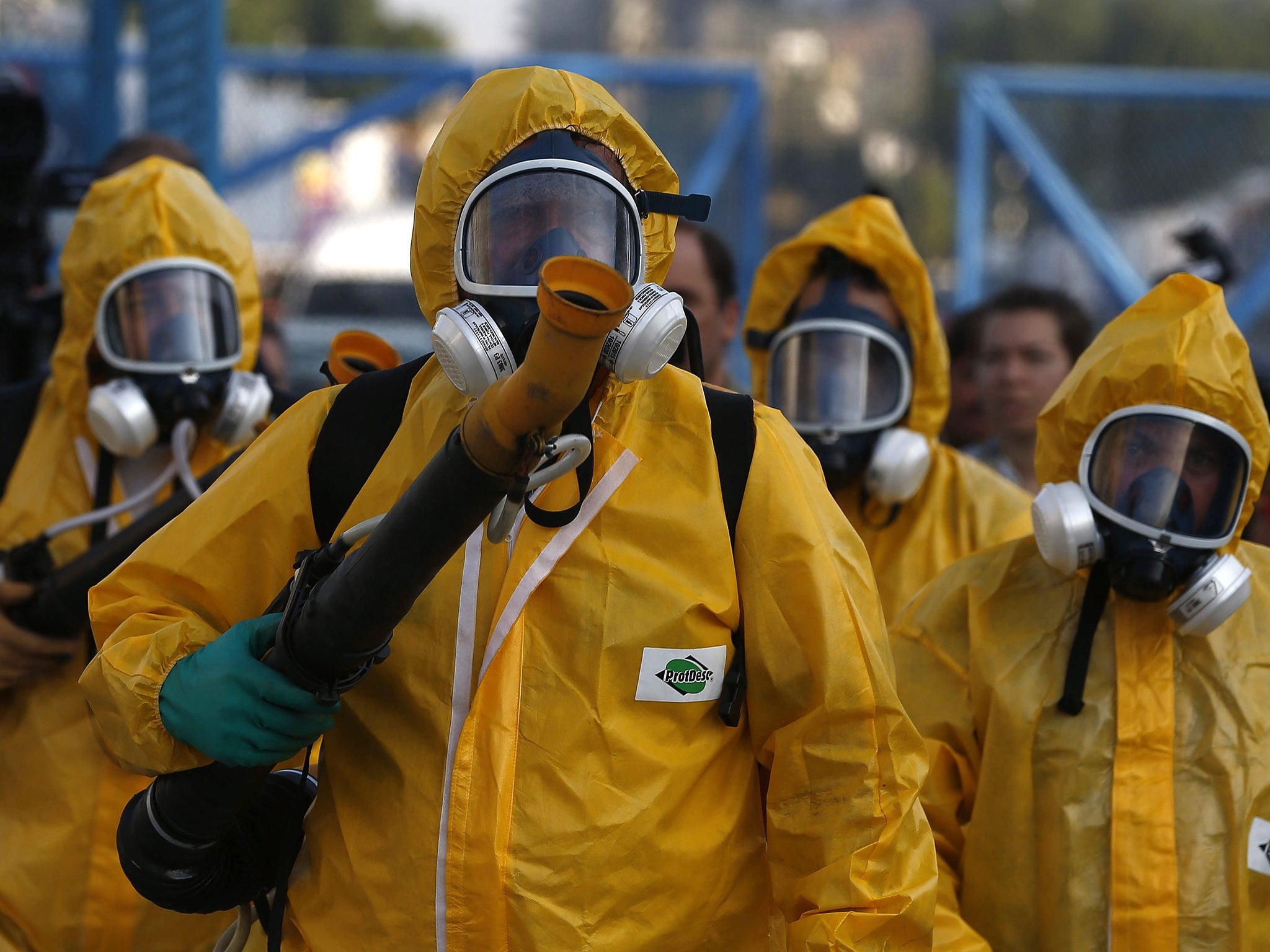Zika virus Q&A: Why is it dangerous? How far is it likely to spread?
The virus has been known about since the 1950s, and is named after the Zika Forest in Uganda

Your support helps us to tell the story
From reproductive rights to climate change to Big Tech, The Independent is on the ground when the story is developing. Whether it's investigating the financials of Elon Musk's pro-Trump PAC or producing our latest documentary, 'The A Word', which shines a light on the American women fighting for reproductive rights, we know how important it is to parse out the facts from the messaging.
At such a critical moment in US history, we need reporters on the ground. Your donation allows us to keep sending journalists to speak to both sides of the story.
The Independent is trusted by Americans across the entire political spectrum. And unlike many other quality news outlets, we choose not to lock Americans out of our reporting and analysis with paywalls. We believe quality journalism should be available to everyone, paid for by those who can afford it.
Your support makes all the difference.What exactly is Zika virus?
It is a mosquito-transmitted virus closely related to the viruses that cause feverish illnesses such as dengue, yellow fever and West Nile disease. It has been known about since the 1950s, and named after the Zika Forest near Lake Victoria in Uganda where it was first isolated in 1947 from a captive monkey. It has since spread across equatorial Africa and, more recently, to Asia, Pacific Polynesia and now South America. It has closely followed the spread of another mosquito-borne virus called Chikungunya and is transmitted by the Aedes group of mosquitoes, although it is not yet known whether other mosquitoes can carry it.
Why is it dangerous?
It is not particularly dangerous to anyone other than pregnant women. Symptoms include fever, rash, joint pains or conjunctivitis – red eyes. Many people might not realise they were infected and recover after two to seven days of being infected. However, there is growing evidence of a causal link between Zika virus infection in pregnancy and births of a congenital disorder called microcephaly, where the brain of the developing foetus fails to grow normally and babies are born seriously deformed. There is no vaccine or treatment for Zika virus.
What’s the evidence that it causes microcephaly?
There is no definite proof as yet. But Brazil has experienced an explosive growth in cases of microcephaly and Zika transmission. Normally, the country reports about 200 microcephaly births a year, but since last October, Brazil has seen nearly 4,000 reported cases of newborns with microcephaly, mostly concentrated in the poorer region of Pernambuco in the north east where between 1 and 2 per cent of newborns now have microcephaly – the normal rate is about 0.07 per cent. At about the same time, the Zika virus has spread rapidly throughout Brazil.
But scientists have also seen an increase in microcephaly in other regions of the world where Zika has recently arrived, such as Yap Island in Micronesia in 2007 and French Polynesia in 2013-14 where many foetuses with microcephaly had been aborted. Other evidence suggests a link, such as two thirds of mothers with microcephaly babies saying they had a rash during pregnancy, and the recovery of zika virus in the womb and in still-born babies.
How far is the Zika virus likely to spread?
Essentially, wherever there is mosquito-borne transmission of dengue, there is a possibility that Zika virus may also spread. In the Americas this means anywhere from about Florida and the US-Mexican border region to the southern tip of Brazil in the south. There is minimum risk of Zika being transmitted by mosquitoes in Britain or northern Europe. Zika transmission is ongoing in Brazil, Columbia, French Guiana, Guatemala, Haiti, Honduras, Martinique, Mexico, Panama, Paraguay, Puerto Rico, Surinam and Venezuela, according to the US Centers for Disease Control and Prevention (CDC).
What should women who are planning to go to these countries do?
Health authorities are suggesting that women in any stage of pregnancy, or who think they might be pregnant, should re-consider their travel plans. The CDC for instance states: “Pregnant women in any trimester should consider postponing travel to the areas where Zika transmission is ongoing. Pregnant women who did travel to one of these areas should talk to their doctor.”
For those who do intend to travel, they are strongly advised to minimise the risk of mosquito bites, both at night and during the day. They should use insect repellent and wear long-sleeves and other clothing that minimises skin exposure. Women living in these countries are being advised to postpone pregnancy if they can until more is known.
What does the future hold?
So little is known about Zika virus, and how it may cause microcephaly, that scientists are anxious to learn more. They said the best-case scenario is that once people become exposed to the virus they develop immunity, which means that it just becomes another childhood infection. The immediate problem, however, is to protect uninfected women who are pregnant or about to get pregnant.
Join our commenting forum
Join thought-provoking conversations, follow other Independent readers and see their replies
Comments